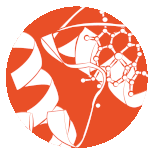
The Precision You Mean: Trans-Inclusive Language in Science and Medicine
As science communicators invested in the ability of science to achieve a better, more informed, less ignorant world, we aim to balance the need for specific scientific language and the desire to make science accessible to a broader audience. Scientific terms exist because scientists, engineers and other specialists need language to efficiently describe complex and sometimes counterintuitive concepts to each other without cross-cultural confusion, ambiguity or long explanations of what, exactly, they mean. Far from being an exercise in obfuscation, scientific terminology is meant to be illuminating—to make things easier, not harder, to understand. Precise scientific terms enable people to say what they actually mean.
Anyway, another famous second-wave feminist keen on burning her acclaim has decided that she’d rather be polemical than precise, on an issue where we at Talk Science to Me have multidimensional expertise.
Margaret Atwood recently subjected her Twitter followers to a Toronto Star article claiming that “trans activism run amok” was trying to remove the word “woman” entirely from public language, citing as examples various situations in which medical journals, medical departments, legal documents and other situations that call for precise language switched from using “women” to “pregnant people,” “birthing people” and similar alternatives. In the columnist’s view, removing “women” from the language used in these situations amounts to both erasing the presence of women within these groups (where cisgender women are indeed the majority) and equating women with the anatomy associated with these abilities.
Leaving aside that these two claims are mutually contradictory—if women are being erased from the category of people who give birth, then women can’t also be reduced to the capacity to give birth—in all of these cases, using “women” as a shorthand is simply incorrect. As the people making these language changes pointed out in each and every instance cited by the Star article, their previous use of “women” did not include all of the people they served. Not all women menstruate, give birth, breastfeed, or have the organs required for any of these functions, and not all people who do these things or have the necessary anatomy are women. Cisgender women—those recognized as female from birth and who usually have the anatomy required for breastfeeding, pregnancy, menstruation and childbirth—are indeed the vast majority of the people occupying obstetrics beds, using sanitary napkins and being targeted by legislation aimed at preventing the termination of pregnancies, but they are not the only targets. Some transgender, intersex and non-binary people can and do give birth, menstruate, breastfeed, terminate pregnancies and otherwise engage in the behaviours this columnist, and by extension Atwood, would claim for “women” and women alone, to say nothing of pubescent cis girls who might find being called “women” inappropriate. Similarly, transgender women (women assigned as male at birth who recognize their femaleness later in life), women who have experienced hysterectomies, women with androgen insensitivity, and women in a variety of other situations have different levels of personal stake in the various questions posited by this article writer as distinctively “women’s issues.” (And yes, some transgender women can and do breastfeed.)
An editorial writer might be able to make do with glib elisions and pithy rhetoric, but a science writer cannot. The science says that pregnancy, menstruation and various other “women’s issues” do not apply exclusively to women. On a purely factual basis, claiming that these issues are “women’s issues” alone is wrong.
Scientific terminology comes from a need for precision. Scientists create new terms and come up with new definitions for older ones when the older usages are inadequate to convey their intended meaning and only that meaning. When not all women menstruate and not all people who menstruate are women, it is a folly to describe that set simply as “women”; instead, it is natural to say exactly what one means. From this reality arise sometimes-clunky new terms: “birthing people,” “people who menstruate,” etc. Similarly, “people with prostates” encompasses most cis men, most trans women, and some non-binary people, while leaving out everyone who doesn’t benefit from an occasional prostate exam. For people who aren’t using this concern about “erasure” to obscure a hidden agenda, the question would be not whether these neologisms are necessary, but which ones do the job best.
Of course, there is a hidden agenda, and the columnist makes that clear by cheerfully quoting noted anti-trans activist J. K. Rowling’s mocking suggestion that there’s already a word for “people who menstruate” and that word is “women.” With this quote, the writer reveals that her goal isn’t to prevent some nebulous “erasure” of women, but to explicitly erase trans and non-binary people who were assigned female at birth by forcibly including them among “women.” (And again, to include young girls in that category.) This is the same position taken by anti-trans bigots who arrive at their bigotry from a religious perspective, and it shows that this columnist’s priority—and by extension, Atwood’s—is not preventing the “erasure” of women, but enforcing the construct of womanhood on anyone who shares reproductive organs with cis women. The “erasure” they fear, then, is not the removal of the word “women” from hospital signs, court cases and anatomy textbooks, but the very possibility that someone assigned female at birth could come to recognize themself as anything else—or that someone assigned male at birth could come to know herself as a woman.
One of the beautiful things about wielding language with precision is that it enables us to see these rhetorical moves in glowing technicolour, even when their writers try to pretend they aren’t making them. The only people who lose when language becomes more precise are the people who gained something from that imprecision. Our team of science writers and editors look forward to language continuing to evolve to better serve the people it describes.


No Comments